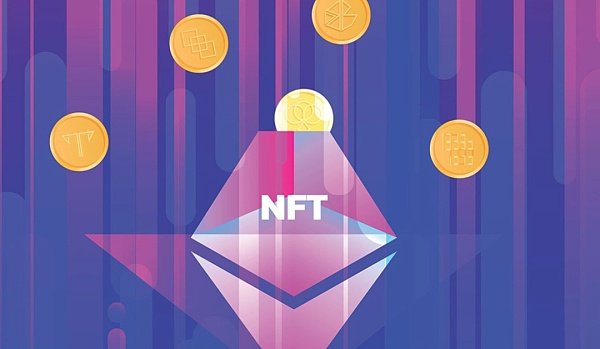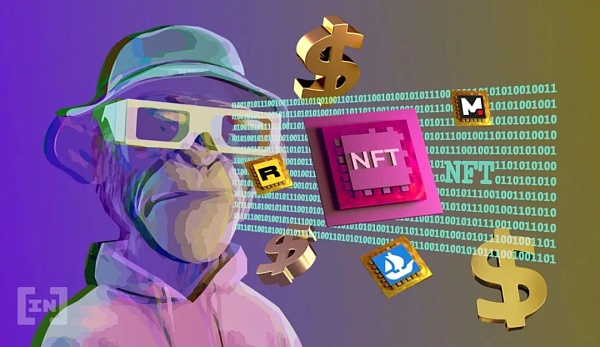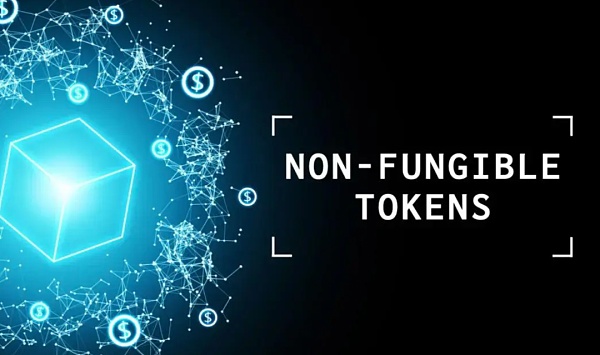Abstract
Currently, many blockchain technology companies are committed to the construction of blockchain-related infrastructure, such as “public chains,” “consortium chains,” “cross-chains,” and other technical constructions. However, those who apply this infrastructure are mostly project token issuers, NFT issuers, decentralized exchange platform builders (DEX), and GameFI project parties. However, these project parties are inevitably mixed with behaviors that are suspected of “cutting leeks.” Once a Web3 technology company provides technical services to project parties that are suspected of “cutting leeks” and thus violating legal issues, does the Web3 technology company have any legal responsibility? In other words, can the technology company “mind its own business” when the project party uses it to “cut leeks”? This is the latest legal issue related to blockchain currently being researched by domestic legal practice departments.
People often say that “technology is not guilty,” but the exploration of technology also needs to prevent giving others “a knife.” Whether the blockchain technology company is suitable for the “safe harbor principle” is a problem that urgently needs to be discussed and solved in the Web3 era. This article will start from the connotation of the “safe harbor principle,” the difference between blockchain companies and Internet platforms, and analyze the judicial standards for applying the “safe harbor principle” in civil trial activities combined with the analysis of the first NFT case in China from multiple angles to explore whether blockchain technology companies can apply the “safe harbor principle.”

- Gas Ticketing: Ethereum Block’s Backend Pass
- Full text of OpenAI CEO’s first speech in China: Will attempt to create a GPT-5 model, but it won’t be done quickly.
- Vitalik: Ethereum ecosystem needs three technological transitions
1. What is the “Safe Harbor Principle”
The “Safe Harbor Principle” refers to the fact that if the Internet service provider (ISP) has evidence to prove that it does not know about the infringement of a third party and immediately takes effective measures to disconnect the link or delete the infringing content after receiving notice from the right holder, it will not assume infringement liability. This principle includes two parts, “notice + removal” (notice-take down procedure). The appearance of the safe harbor principle has left some buffer space for ISPs. China’s absorption and legislation of the “safe harbor principle” are mainly reflected in the relevant provisions of the “Regulations on the Protection of the Right to Network Dissemination” (hereinafter referred to as the “Regulations”). The regulations stipulate under what conditions network automatic access or transmission service providers, network automatic storage service providers, information storage space rental service providers, search engine service providers, and other ISPs can apply the safe harbor principle. The detailed regulations are reflected in Articles 20 to 23 of the “Regulations”:
Article 20 If a network service provider provides network automatic access services based on the instructions of the service object, or provides automatic transmission services for works, performances, and sound and video recordings provided by the service object, and has the following conditions, it shall not bear compensation liability:
(1) The transmitted works, performances, and sound and video recordings have not been selected and have not been changed;
(2) Provide the works, performances, and sound and video recordings to the designated service object and prevent others from obtaining them.
Article 21 If a network service provider automatically stores works, performances, and sound and video recordings obtained from other network service providers to improve network transmission efficiency, and provides them to service objects automatically according to technical arrangements, and has the following conditions, it shall not bear compensation liability:
(1) The works, performances, and sound and video recordings automatically stored have not been changed;
(2) Does not affect the original network service provider’s grasp of the service object’s acquisition of the works, performances, and sound and video recordings provided;
(3) Automatically modify, delete, or block according to technical arrangements when the original network service provider modifies, deletes, or blocks the works, performances, and sound and video recordings.
Article 22 If a network service provider provides information storage space to a service object for providing works, performances, and sound and video recordings to the public through an information network, and has the following conditions, it shall not bear compensation liability:
(1) Clearly indicate that the information storage space is provided for the service object, and publicly display the name, contact person, and network address of the network service provider;
(2) The works, performances, and sound and video recordings provided by the service object have not been changed;
(3) It does not know or have a reasonable reason to know that the works, performances, and sound and video recordings provided by the service object infringe;
(4) Did not directly obtain economic benefits from the works, performances, and sound and video recordings provided by the service object;
(5) After receiving the notice from the right holder, delete the works, performances, and sound and video recordings that the right holder considers infringing according to the provisions of these Regulations.
Article 23 If a network service provider provides search or link services to a service object, and disconnects the link with infringing works, performances, and sound and video recordings according to these regulations after receiving the notice from the right holder, it shall not bear compensation liability; however, if it knows or should know that the linked works, performances, and sound and video recordings infringe, it shall assume joint liability for infringement.

Second, there is a fundamental difference between blockchain companies and Internet platforms, and NFT project parties cannot simply analogize the “safe harbor principle” applicable to Internet platforms
The standard for applying the “safe harbor principle” for blockchain companies that provide issuance platforms should be higher than that for ordinary Internet companies. This is mainly based on considering the differences between blockchain companies and Internet platforms:
First, the Internet belongs to the platform economy, and the original business of Internet platforms is not based on local area networks. In the platform-based business model of the Internet, there will always be a “controller” who takes away most of the benefits on the platform. The Internet is a centralized business model, while blockchain brings a distributed business model. Public chains have neither shareholders nor boards of directors and management, nor even employees. Technically, it realizes an ecological business body, which has no legal structure. Networks like Bitcoin have no legal structure, no shareholders meeting, no board of directors, no management, no office space. They are floating in the Internet world, floating in the digital world of commercial entities.
Second, Internet business emphasizes monetization on traffic. Blockchain does not obtain value from the perspective of traffic, but more from data monetization. Blockchain does not obtain value from the perspective of traffic, but more from data monetization. As a guest mentioned earlier, data based on blockchain is trustworthy data. On the basis of trustworthy data, other digital technologies such as privacy calculation can be added to make data exchangeable. With trustworthy and exchangeable data, this is the basis of artificial intelligence. So far, we have seen that artificial intelligence requires a lot of data to train models to make themselves closer to reality and have some predictability.
However, if the data is not trustworthy, a lot of cost is needed to process the data. If the data is trustworthy, the cost of using artificial intelligence to train algorithms will be much lower, and the amount of data that can be obtained will also be much larger. The monetization of data and the monetization of traffic are also huge differences between the Internet and blockchain at the commercial level.
Third, the economic incentive model of Internet business is external, and the economic incentive model of blockchain business is internal and self-contained . This is also a huge difference between the Internet and blockchain in terms of business models and business innovation. For a commercial activity like e-commerce to complete its closed loop, it is not enough to rely solely on the e-commerce system, so independent payments appear. And because of the distributed ledger, blockchain technology is fundamentally different from Internet technology. Based on such an account system, blockchain naturally has payment and light settlement functions, and it is a payment network and a light settlement network for financial exchanges.
Based on the fundamental differences between internet platforms and blockchain enterprises, Lawyer Liu Lei expressed at the Hong Kong web3 conference that, formally speaking, NFTs sell copyright, which is anchored to the value of rights and interests, but in essence, the speculation is on the voucher representing the copyright itself. Therefore, blockchain enterprises that provide voucher services should more strictly audit the equity vouchers sold by NFT companies for their value.
The essence of NFT is to split the copyright and sell it to retail investors. The blockchain company plays a role in making codes and providing platforms during the issuance process. Each code corresponds to a unique copyright fragment. After the code is generated, the project party publicly authorizes the release, making the code a voucher. The issuance behavior of the NFT project party belongs to an offer, and once the invitee promises, the contract is established and effective. However, many buyers are not interested in the value of the equity represented by the code, but pay for the value of the code speculation. This speculative behavior is similar to the speculation of air coins in the coin circle. In the current judicial practice, the technical provider who issues and speculates on air coins is mostly punished for helping fraud or even illegal fund-raising.
Therefore, the relationship between the NFT project party issuing an air project and the blockchain company providing codes cannot be simply compared to the relationship between network information and internet enterprises, but should be compared to the relationship between the project party issuing air coins and the technical provider. Take the example of telecommunications fraud: the operator who provides telephone services obviously does not constitute an accomplice to the fraud, only providing telephone services, but the person who provides the script to the fraudster obviously constitutes help. Therefore, we believe that the internet only exists as a platform for displaying user works, but blockchain enterprises have a natural role in helping and promoting the issuance and speculation of NFTs.

III. Exploring the technical behavior of blockchain companies from the perspective of “helping information network criminal activities”
Article 287.2 of the Criminal Law stipulates that, if someone knowingly provides technical support such as internet access, server hosting, network storage, communication transmission, advertising promotion, payment settlement, etc. for someone else’s use of the information network to commit crimes, and if the circumstances are serious, they will be sentenced to less than three years’ imprisonment or fixed-term imprisonment, and/or a fine.
Article 11 of the “Interpretation of Several Issues Concerning the Application of Laws in Criminal Cases Involving the Illegal Use of Information Networks and Assistance in Information Network Criminal Activities” issued by the Supreme People’s Court and the Supreme People’s Procuratorate stipulates that if a person provides technical support or assistance for others to commit a crime and has any of the following circumstances, it may be determined that the actor knows that others are using the information network to commit a crime, except for the opposite evidence:
(1) After being informed by the regulatory department, he still carries out relevant behaviors;
(2) Failing to perform statutory management duties after receiving a report;
(3) The transaction price or method is significantly abnormal;
(4) Provide programs, tools, or other technical support or assistance specifically for illegal crimes;
(5) Frequently adopt measures such as concealed Internet access, encrypted communication, data destruction, or use false identities to evade supervision or circumvent investigation;
(6) Provide technical support or assistance to others to evade supervision or evade investigation;
(7) Other circumstances sufficient to prove that the actor knows.
Nowadays, the “Shu Cang” project has frequently exploded, either due to insufficient consensus leading to explosions, false propaganda leading to explosions, or the inability to redeem the equity anchored by the “Shu Cang” issued by the project party leading to explosions… Based on this: can the blockchain company helping the IP project party to issue “Shu Cang” stand alone and believe that it has no legal responsibility when facing the explosion of the project party that achieves the issuance of “Shu Cang” through its own implementation?
The key to the discussion of whether the blockchain company has legal responsibility is:
Firstly, does the blockchain company have the possibility of “knowing and should know” for the IP project party’s explosion of issuing “Shu Cang” and may violate the law?
Second, has the blockchain company fulfilled its due diligence in providing technology for IP project parties to issue “Shu Cang” and may commit criminal offenses, and has it clearly defined the role of technology and the scope of services? Has it made sufficient disclaimers?
According to my understanding, some investigating units currently handling such cases believe that: first, blockchain companies play a crucial role in the issuance of “Shu Cang” by IP project parties. Without such technology support, IP project parties cannot complete the issuance; second, the “Initiative on Preventing NFT-related Financial Risks” issued by the China Internet Finance Association, the China Banking Association, and the China Securities Industry Association in April 2022 reminds to pay attention to a series of issues such as speculation and abuse of technology, copyright infringement, fictitious value, irregular trading, potential financialization, and even fraud, pyramid schemes, money laundering, and illegal fund-raising. Therefore, based on this: blockchain companies that provide technical support for the Shu Cang project party should enhance their “duty of care” to prevent providing technical support for project parties to commit crimes through Shu Cang; third, digital collections are positioned for “consumer value” rather than secondary market trading speculation through copyright splitting, becoming tools for project parties and early investors to accumulate wealth. Otherwise, what is the meaning of a “fundraising project”?
Therefore, blockchain companies should be fully aware of whether the projects they serve have been authorized for legal copyright. Is the value of copyright scarce? What is the market value of the associated copyright? Has the project opened a secondary market? Besides anchoring the copyright, are there any commitments to anchor other rights?
In addition, lawyer Liu Lei understands that some NFT digital collection rights certificates conflict with the copyright of works in the real scene. For example, in 2022, the descendants of the famous Chinese painting master Zhang Daqian issued a statement, stating that a certain digital trading company in Hangzhou, operating the “Virtual Mi” digital collection trading platform, sold digital collections of Zhang Daqian’s works without authorization from the relevant copyright owner. There are a total of 5 collections, each limited to 4,000 copies, with a total sales amount of more than 1.3 million yuan, and one of the collections has no corresponding original work and is a fake. The rights holder stated that the company’s move violated the copyright of Zhang Daqian’s works, and it will pursue the infringement liability of the relevant platform. Lawyer Liu Lei believes that the audit obligation of NFT is much higher than that of Internet platforms. Digital collection platforms and subjects in various links of the industry chain should strictly comply with intellectual property laws and regulations such as copyright law, respect the intellectual property rights of rights holders, and strengthen the audit of the legality and compliance of intellectual property authorization. Otherwise, the project party will bear the responsibility of copyright infringement at best, and at worst, it will bear the criminal responsibility of infringing copyright.

IV. Judicial standards for blockchain companies to apply the “safe harbor principle”: a case study of the first domestic NFT case
On April 20, 2022, the Hangzhou Internet Court ruled that the operator of the NFT platform “NFT China (NFTCN)” immediately delete the NFT works published on the platform, compensate for the plaintiff’s economic losses and reasonable expenses arising therefrom. In this case, the defendant argued that as a platform, it only has a post-review obligation, and has put the involved works into the address black hole, fulfilling the “notice-deletion” obligation, and should not bear any infringement liability. The Hangzhou Internet Court proposed a higher pre-review obligation for the NFT platform in this judgment, with the following reasons: the platform has strong control: the involved platform has strong control over the NFT digital works traded on its platform, and also has corresponding review capabilities and conditions, and does not add additional control costs. The platform directly benefits from the transaction. NFT platforms are different from e-commerce platforms and platforms that provide storage and link services, and they directly benefit from NFT digital works. The involved platform not only charges a gas fee for casting the work, but also collects a certain percentage of commission and gas fee after each successful work transaction, so it should naturally bear a higher duty of care. Therefore, the involved platform not only needs to fulfill the responsibilities of general network service providers, but also should establish a set of intellectual property review mechanisms, conduct preliminary reviews of the copyright aspect of NFT works traded on the platform, otherwise it should bear corresponding legal responsibilities.
In civil litigation activities, the court insists that ISPs should have a higher duty of review. Of course, this review should be based on the duty of a good manager that the ISP has, and the ISP should be given a certain degree of autonomous decision-making power and review space. This case is known as the “first case of infringement of NFT digital collections”. The Hangzhou Internet Court imposed a higher review obligation on the NFT platform, but whether this will further develop into guidance from higher-level courts or become a guiding case, which will be accepted by more courts or confirmed by competent authorities in the form of administrative regulations or even laws, is still unknown. Some practitioners and scholars believe that the civil liability of the NFT platform should be determined by the safe harbor rule of “notice-and-takedown” provided in Article 1195 of the Civil Code. That is, once the platform receives a notice of infringement of the NFT work, it should take technical measures such as blocking and deleting. Due to the technical characteristics of the blockchain, deletion cannot be performed. As an alternative, the NFT can be sent to an address black hole to achieve the purpose of “deletion”.
Whether the NFT platform should bear a higher review obligation is related to the development of the NFT platform and even the application of blockchain technology. Based on the current regulatory environment of NFT, in order to minimize the risk of bearing infringement liability, the NFT platform can consider setting up an active pre-review mechanism to conduct preliminary review of whether NFT works on the platform constitute infringement.

V. Referring to the “safe harbor principle”: the due diligence obligations and exemption scope of the domestic NFT industry chain
From the perspective of market practice, platforms are obviously in a dominant position compared to users. The platform has strong control over the NFT issued on the platform, including the right to review the source of NFT rights, decide whether to issue NFT, the NFT issuance model, where to store NFT on which blockchain, restrict the transfer of NFT, and even decide to stop providing services, etc. Therefore, the due diligence obligations of blockchain companies are very high, and different from NFT based on public chains, domestic digital collections mainly rely on alliance chains for issuance, and compliance requirements are higher. This also determines that blockchain companies need to fulfill higher due diligence obligations than Internet companies in order to apply civil exemption provisions similar to the “safe harbor principle”. More importantly, it is to avoid providing “assistance” to criminals, becoming an accomplice to pyramid schemes, illegal fund-raising crimes, fraud crimes, computer information system crimes, or constituting concealment and concealment of criminal proceeds, criminal proceeds and income crimes, and assistance in information network crime activities.
We believe that in the future, the domestic NFT industry should fulfill the obligations and exemptions in the following areas:
First, complete record filing procedures, including blockchain information service record filing, value-added telecommunications business operation license, network culture operation license, art business record filing, auction operation license, and in addition to the aforementioned qualification license or filing requirements, companies must also obtain licenses such as “Information Network Broadcasting and Audiovisual Program License” according to the actual development of their own business, or conduct algorithm filing, etc.
Second, perform “pre-examination”, including reviewing the legality and authenticity of the NFT digital work source and confirming that the NFT minter has the appropriate rights or permissions. Under the internal requirements of “higher duty of care”, the NFT digital work trading platform can only intervene in the examination of digital works in advance of the issuer minting NFTs.
Third, implement information content security management responsibilities, including identity authentication, security assessment, content management, and establish a sound management system.
Fourth, protect data according to the classification and grading system, establish platform rules, privacy policies, and when verifying user personal information, give priority to using the personal identity authentication services provided by the national network identity authentication public service infrastructure in order to better protect users’ personal privacy.
Fifth, establish a sound personal information protection compliance system, set up an independent institution mainly composed of external members to supervise the protection of personal information; follow the principles of openness, fairness, and justice, formulate platform rules, clarify the norms for product or service providers within the platform to handle personal information and obligations to protect personal information; for platform providers of products or services that seriously violate laws and administrative regulations in handling personal information, stop providing services; in addition, it is necessary to regularly release social responsibility reports on personal information protection and accept social supervision.
Sixth, guard against risks such as hype, money laundering, and illegal financial activities, which can mainly be carried out in the following ways:
1. NFT financial securitization, that is, not including securities, insurance, credit, precious metals and other financial assets in the underlying commodities of NFT, and issuing and trading financial products in a disguised manner.
2. Use NFT for financing in a disguised manner, that is, not to weaken the non-homogeneous characteristics of NFT by splitting ownership or creating batches, and to issue tokens for financing in a disguised manner (ICO).
3. Do not provide centralized trading services (such as centralized bidding, electronic matching, anonymous trading, market makers, etc.) or continuous listing trading services for NFT transactions, or standardized contract trading services, etc., which are illegal in disguise as setting up trading places.
4. Do not use virtual currencies such as Bitcoin, Ethereum, and Tether as the pricing and settlement tools for NFT issuance and transactions;
5. Authenticate the issuers, sellers, and buyers, properly keep customer identity information and issuance and transaction records, and actively cooperate with anti-money laundering work.
6. Do not directly or indirectly invest in NFTs or provide financing support for investing in NFTs.

Final Words
NFTs can promote the development of the digital economy and cultural and creative industries. Its role should not be underestimated. At present, although blockchain technology has no national boundaries, the practical application of technology requires rules to regulate it. The law firm of Liu Lei believes that in the current practice, blockchain companies should be cautious about applying the “safe harbor principle” for exemption from liability, and should consult lawyers who have professional knowledge in blockchain compliance to avoid legal risks in business landing.
With the popularization of the “Internet+” thinking in the economic and social fields, blockchain technology companies need to carefully consider the risk issues of emerging technologies in practical applications and consult lawyers who have professional knowledge in blockchain compliance to ensure that their business landing is legal and compliant and to avoid legal risks.
Like what you're reading? Subscribe to our top stories.
We will continue to update Gambling Chain; if you have any questions or suggestions, please contact us!